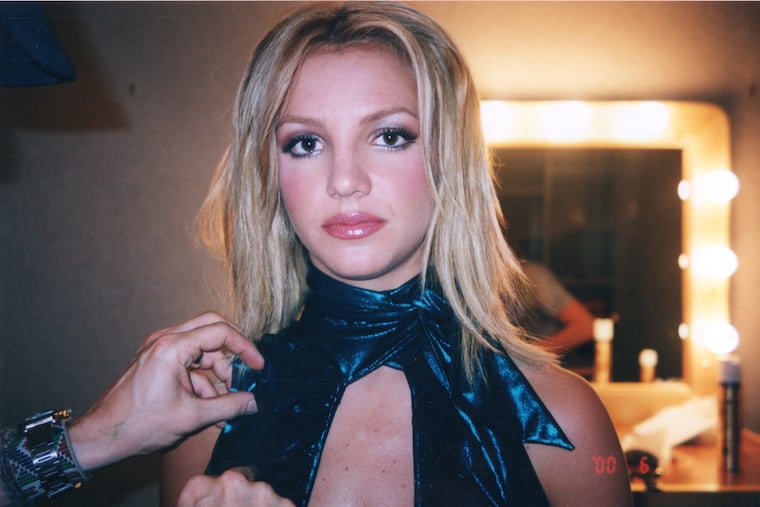Free Britney, and all people, from reproductive coercion | Opinion
People who wish to end a pregnancy deserve the same level of autonomy and support as Britney Spears does when it comes to her fertility.

People are coerced to make reproductive choices against their will every day in the United States. But it’s not every day that one of those people is one of the world’s most famous pop icons: Britney Spears.
For the past 13 years, Spears has been under the conservatorship of her father and a team of lawyers. That means that since her mid-20s, the 39-year-old star, who is worth nearly $60 million, has been unable to make the most basic decisions over her life, career, or finances.
» READ MORE: Britney Spears asks judge to end court conservatorship that has controlled her life and money for 13 years
In a 24-minute statement in front of a California judge on Wednesday, Spears broke years of silence. She spoke about the harrowing toll the conservatorship had on her life and compared her situation to that of a victim of sex trafficking. “What state allows people to own another person’s money and account and threaten them, saying, ‘You can’t spend your money unless you do what we want you to do.’ And I’m paying them,” she said in her statement.
Toward the end of her remarks, Spears told the judge: “I want to be able to get married and have a baby. I was told right now in the conservatorship, I’m not able to get married or have a baby, I have an IUD inside of myself right now so I don’t get pregnant. I wanted to take the IUD out so I could start trying to have another baby. But this so-called team won’t let me go to the doctor to take it out because they don’t want me to have children — any more children.”
An intrauterine device (IUD) is a highly effective method of contraception that is inserted into the uterus by a trained medical provider. Depending on the type of IUD, it can prevent pregnancy for up to 12 years and possibly longer. Removal is typically also completed by a provider, although self-removal can be safe. (Britney, if you’re reading this, check out some self-removal tips here.)
The calls to #FreeBritney, a social media movement that began the year after the conservatorship began in 2009 and grew louder after the release of the Framing Britney Spears documentary earlier this year, erupted on social media after Britney broke her silence this week. The revelation that she is unable to remove her own IUD and seek pregnancy has met with almost universal condemnation — ranging from Planned Parenthood president Alexis McGill Johnson to conservative Republican Sen. Ted Cruz.
Some of those calls — for example, from anti-choice lawmakers like Cruz — reveal hypocrisy.
Spears’ inability to choose if and when to be pregnant is a clear example of reproductive coercion: a behavior intended to control another individual’s reproductive autonomy. Reproductive coercion can come from a partner — or in this case, a family member — in many forms, including verbal threats, violence, or legal requirements.
“Individuals who wish to end a pregnancy deserve the same level of autonomy and support as Spears does when it comes to her fertility.”
Another example, closer to home: This month, Pennsylvania House Republicans — with assistance from some Democrats — passed a bill that would ban a person from terminating a pregnancy if there was a diagnosis of Down syndrome. In other words, the state would force a certain outcome when other options are available.
Spears’ vulnerability, a public struggle with mental health and substance use, is an experience shared by many. Mental health, combined with a societal distrust that women are capable of making their own reproductive decisions, has been a persistent excuse to exert bodily control.
Not letting a person pursue a desired pregnancy is reproduction coercion. That is obvious and not controversial to many. But individuals who wish to end a pregnancy deserve the same level of autonomy and support as Spears does when it comes to her fertility. Similarly, every individual who is forced to have an unnecessary ultrasound or listen to inaccurate, government-mandated counseling prior to abortion care (as Pennsylvania requires) is subject to a form of reproductive coercion.
» READ MORE: Britney Spears' public support may not mean much in court
That is why calls to Free Britney must come with calls for true reproductive justice. That means the ability for every person — regardless of age, race, zip code, health insurance, immigration status, and gender identity — to determine their reproductive story and work to dismantle all oppressive systems.
Spears shouldn’t need to ask her father’s or the court’s permission to take out her IUD — and it shouldn’t have to take being one of the most famous pop stars on Earth for us to collectively see the cruelty of reproductive coercion.
Abraham Gutman is an Opinion staff writer for The Inquirer. Sarah Gutman is an OB-GYN in Philadelphia. They are the proud parents of Mara.